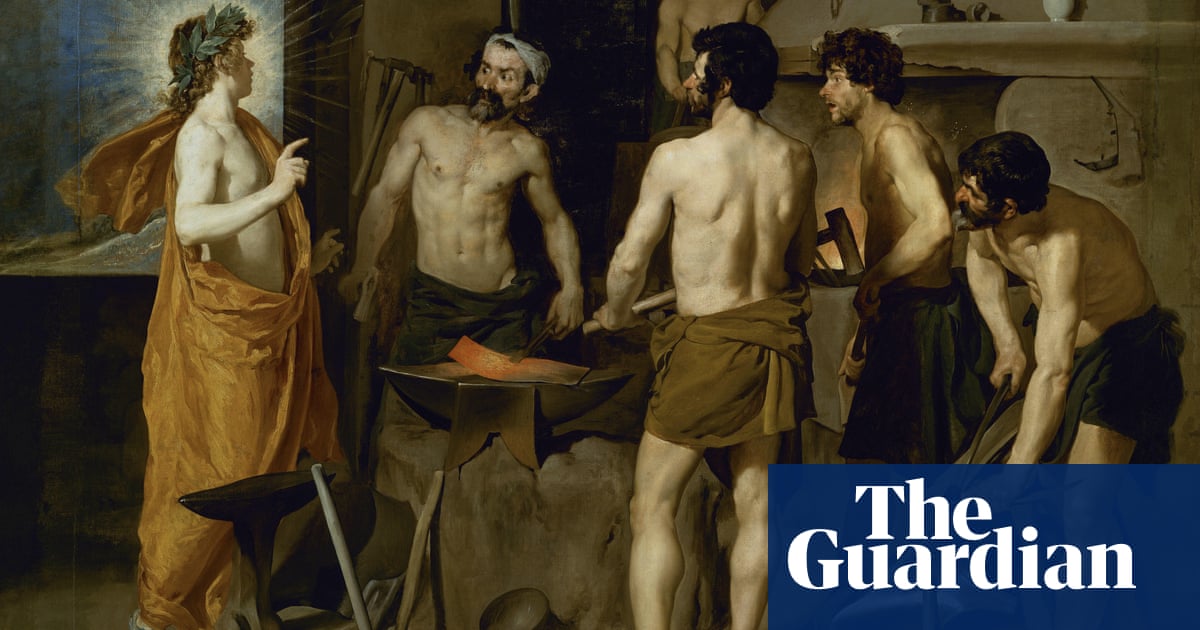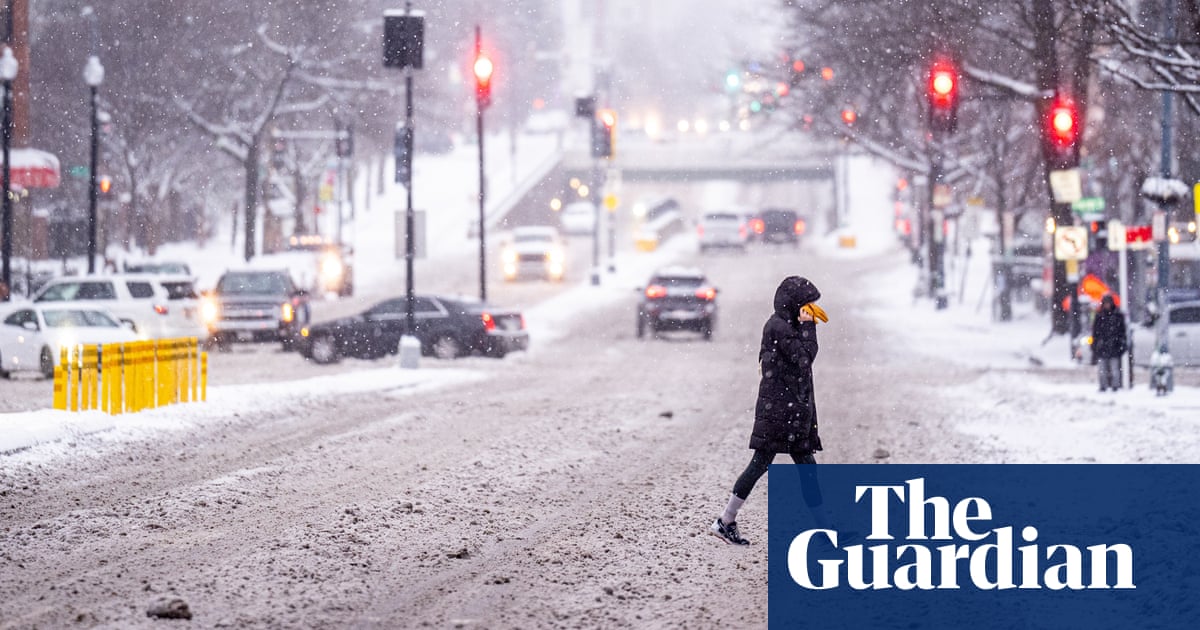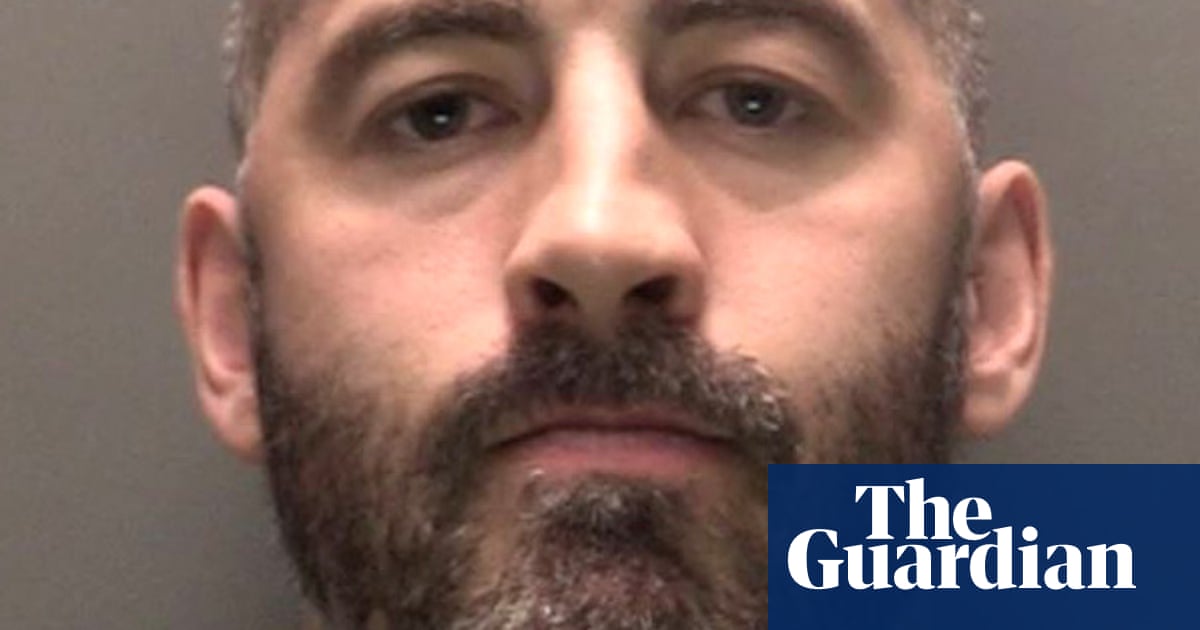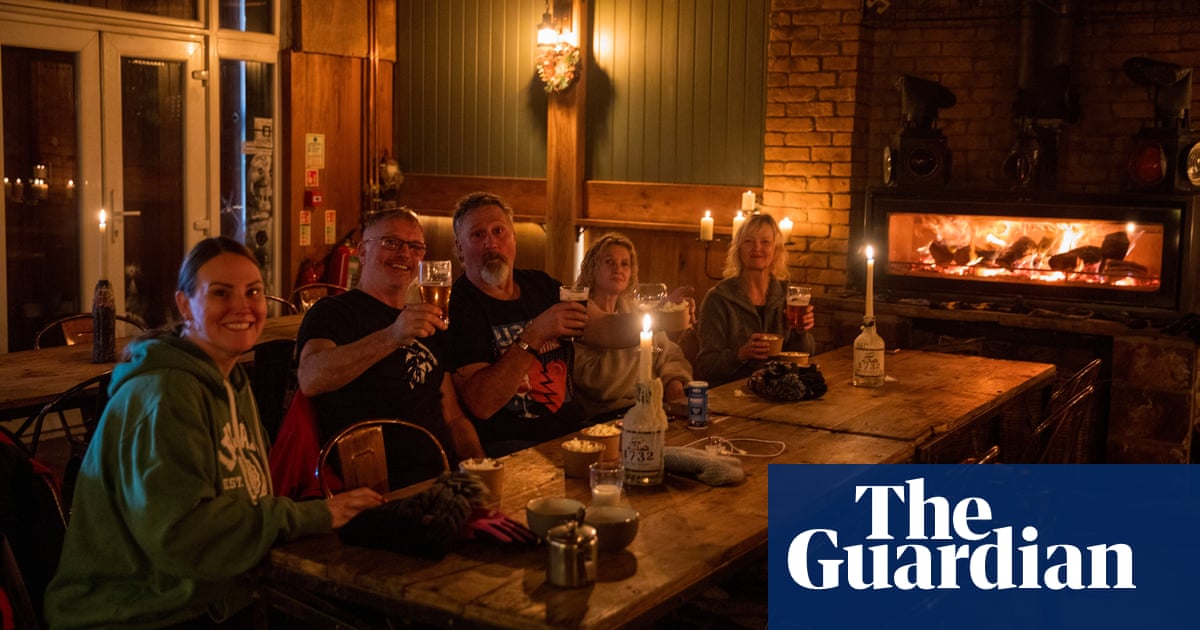In a country beset by gang warfare, the Ecuadorian city of Otavalo stands as a haven of safety, where the Kichwa community thrives with its rich cultural heritage, vibrant traditions, distinctive clothing – and long hair.
Since 2006, I have been seeking out and photographing women with long hair across South America. In Otavalo, I found that men also embrace the tradition of wearing their hair long.

-
Yuyak Santillan, 14, and Naupak Santillan, 13, with their father. Only a family member is granted the privilege to touch someone else’s hair
Braids, in particular within Indigenous communities, symbolise an act of resistance, traced back to the trauma of forced hair cutting during the Spanish conquests.
Today, the younger generations in Otavalo feel free from the shame and fear that once shadowed their elders, and many proudly embrace their long hair and braids. This act symbolises a commitment to cultural continuity, a defiance against external pressures, and a living testament to the enduring strength of Indigenous communities.

-
For Katerini Pupiales, 22, having long hair is about respecting family customs. For Jossbell Macsias, 18, it is a cultural symbol, representing strength in his heritage




-
Clockwise from top left: Esther Bonilla and her son Jose, 10, live in Colombia, but regularly return to Otavalo; Dylan, 16, sees his long hair as a reclaiming of cultural heritage and an assertion of identity; a churchgoer in the Iglesia San Francisco de Otavalo; Walter Ianberla and his son Jacob visit the grave of a family member
In Otavalo, long hair is a symbolic link to ancestral lands and reflects the Kichwa connection to nature and the spiritual. Many of those who have moved away continue to follow the tradition. Walter Ianberla, 39, and his son Jacob, 12, live in Switzerland but keep their hair long. “As long as we continue with our customs, the culture endures. We all must uphold it, no matter where we are,” Walter says.
Each year, a long hair competition is held during Pawkar Raymi, meaning “festival of blooming”, in Kichwa. The ancient Andean ceremony honours Pachacámac or Pacha Kamaq, the creator of the world, and serves as a thanks and sharing ritual for the gifts bestowed by Pachamama, the Mother Earth. The competition aims to celebrate Otavalo’s long hair tradition and incentivise young people to keep it alive.

-
Erick Arungo, 22, and Dylan, 16. Arungo loves the Kichwa culture but wants to be free to choose for himself. ‘There’s a chance I’ll go back to it, but that will be my decision only,’ he says




-
Clockwise from top left: Taking part in the long hair competition are Kuri Guerrero, 19, and Apauki Guerrero, 15; Nestor, 16; Wayra Muler, 10; and Yuyak and Naupak Santillan
The Otavaleños, known for their entrepreneurial spirit, have shown their adaptability by balancing modernity with ancestral traditions. But the leaders of Otavalo, concerned about a gradual loss of this cultural identity, recently issued a resolution requiring parental consent for minors to have their braids cut in local barbershops.

-
An Otavaleño woman combines the traditional long hair with modern jeans
“For us, hair is more than strands. It symbolises life, a legacy that has taken a lifetime to cherish. It’s a precious treasure, akin to the radiant rays of the sun – an intricate link between spiritual nature and human essence,” say Yarina and Estefanía Espín.

-
Yarina and Estefanía say their hair ‘symbolises life, a legacy that has taken a lifetime to cherish’
Education and cultural transmission within families ensures the continuity of their heritage, while engagement with the global community amplifies their cultural visibility and contributes to economic success and global pride.


-
A group of Otavaleños sporting braids under their hats (left); and measuring a contestant’s hair for the long hair competition
Ruminawi Cachimuel, 46, says: “We’ve fought hard for our braids; it was a lengthy struggle to proudly showcase our braids. As a people, we’ve endured significant hardships. Now, I teach my children that they must learn from our ancestors and pass down to future generations what it means to be Kichwa.”

-
Ruminawi sitting on a sofa with his son and two nephews

.png) 2 months ago
18
2 months ago
18













































